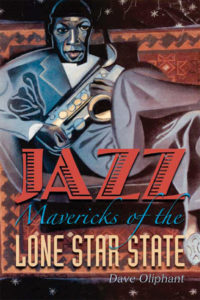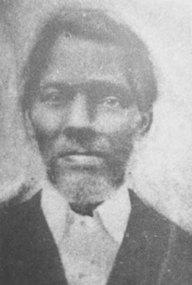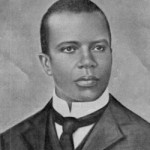Texas will finally teach that slavery was main cause of the Civil War
Slavery has been upgraded to the primary cause in the curriculum, however states’ rights and sectionalism will still be taught as “contributing factors”
Image: Confederate troops on the Las Moras, Texas (Public Domain)
(Smithsonian.com) Last week, the Texas Board of Education voted to make a change to the state’s social studies standards that no serious historian would quibble with, but is, nevertheless, controversial in the Lone Star State: to teach that slavery was the central issue of the American Civil War, and not, as previous standards had dictated, a cause eclipsed by states’ rights and sectionalism. Camille Phillips at NPR reports the change is one of several to the curriculum that will be implemented in the 2019-2020 school year.
Standards previously adopted in 2010 were designed to play up the role of states’ rights and sectionalism and downplay slavery as the reason Texas entered the Civil War on the side of the Confederacy. Slavery, one board member said at the time, according to The Washington Post, was a “side issue.”
While the board’s Democrats, who first proposed the change in language in September, wanted to update standards to elucidate the central role that slavery played in the Civil War, the Republican-dominated board succeeded in keeping states’ rights issues and sectionalism on as “contributing factors” for the Civil War. The resulting compromise, according to the board, will teach “the central role of the expansion of slavery in causing sectionalism, disagreements over states’ rights, and the Civil War.” (more)
Historic Central Austin Building to be Renamed After Freed Slave
(Spectrum News) A historic building in Austin’s West Campus will be renamed after a freed slave.
- Landmark will be known as “The Reverend Jacob Fontaine Gold Dollar Building”
- Historians say the renaming rights a wrong
- Historic designation will prevent the building from being demolished
With City Council approval, the historic landmark at 2402 San Gabriel Street, near West 24th, will be officially known as “The Reverend Jacob Fontaine Gold Dollar Building.” For years, it was known as the “Franzetti Store of Wheatsville.” Now, the city is looking to recognize the African-American community that was once there. The area was called Wheatsville.
“In renaming the building, we’ve righted that wrong and tried to recognize the African-American history of it as being very significant,” said Steve Sadowsky, a historic preservation officer for the Planning and Zoning Department.
According to the Austin History Center, after emancipation, Rev. Jacob Fontaine founded several Baptist churches in Central Texas, some of which are still active today. He also founded and ran “The Gold Dollar” in that San Gabriel Street building where he lived. “The Gold Dollar” was one of the first black African-American newspapers in the South. Historians said Fontaine wanted to increase literacy among freed slaves.
“He took that position of leadership and really ran with it, and did so much for the quality of life of African Americans in Austin, immediately following the Civil War,” Sadowsky said.
The historic designation prevents the building from being demolished and all renovations to go through the Historic Landmark Commission. A student housing development is currently being built around the building. (video)
How Stan Lee’s X-Men Were Inspired by Real-Life Civil Rights Heroes
Did Stan Lee support the Civil Rights Movement through his comic books for Marvel?
(History) It’s impossible to imagine American pop culture without Spider-Man. Or the Hulk. Or, thanks to a decade’s worth of mega-blockbuster films, Iron Man, Thor, Dr. Strange, and Ant-Man. These stories—all co-creations of Marvel Comics impresario Stan Lee, who died on November 12, 2018 at 95—were swashbuckling adventures with a human bent. The characters weren’t all powerful; they felt pain, anguish, regret; they won, but also lost. And many of them were informed by the Civil Rights struggles of the 1960s.
Through stories of characters who were demonized by the public as the terrifying Other, Lee drove home messages of tolerance and acceptance while rejecting demonization and bullying. “Those stories have room for everyone, regardless of their race, gender, religion, or color of their skin,” Lee said 2017 video published by Marvel. “The only things we don’t have room for are hatred, intolerance, and bigotry.” (more)
TIPHC Bookshelf
 Published scholarship on black history in Texas is growing and we’d like to share with you some suggested readings, both current and past, from some of the preeminent history scholars in Texas and beyond. We invite you to take a look at our bookshelf page – including a featured selection – and check back as the list grows. A different selection will be featured each week. We welcome suggestions and reviews. This week, we offer, “Jazz Mavericks of the Lone Star State,” by Dave Oliphant.
Published scholarship on black history in Texas is growing and we’d like to share with you some suggested readings, both current and past, from some of the preeminent history scholars in Texas and beyond. We invite you to take a look at our bookshelf page – including a featured selection – and check back as the list grows. A different selection will be featured each week. We welcome suggestions and reviews. This week, we offer, “Jazz Mavericks of the Lone Star State,” by Dave Oliphant.
Jazz is one of America’s greatest gifts to the arts, and native Texas musicians have played a major role in the development of jazz from its birth in ragtime, blues, and boogie-woogie to its most contemporary manifestation in free jazz. Dave Oliphant began the fascinating story of Texans and jazz in his acclaimed book Texan Jazz, published in 1996. Continuing his riff on this intriguing musical theme, Oliphant uncovers in this new volume more of the prolific connections between Texas musicians and jazz.
Jazz Mavericks of the Lone Star State presents sixteen published and previously unpublished essays on Texans and jazz. Oliphant celebrates the contributions of such vital figures as Eddie Durham, Kenny Dorham, Leo Wright, and Ornette Coleman. He also takes a fuller look at Western Swing through Milton Brown and his Musical Brownies and a review of Duncan McLean’s Lone Star Swing. In addition, he traces the relationship between British jazz criticism and Texas jazz and defends the reputation of Texas folklorist Alan Lomax as the first biographer of legendary jazz pianist-composer Jelly Roll Morton. In other essays, Oliphant examines the links between jazz and literature, including fiction and poetry by Texas writers, and reveals the seemingly unlikely connection between Texas and Wisconsin in jazz annals. All the essays in this book underscore the important parts played by Texas musicians in jazz history and the significance of Texas to jazz, as also demonstrated by Oliphant’s reviews of the Ken Burns PBS series on jazz and Alfred Appel Jr.’s Jazz Modernism.
This Week in Texas Black History
Nov 23
 On this day in 1963, Baylor University’s athletic council announced it would integrate all of the school’s athletic teams, effective with the opening of the spring semester, Jan. 30, 1964. At the time, the school had no black students, but had announced its intention to open enrollment. John Bridgers, head football coach and athletic director said, “We don’t know of any Negro athletes right now that we’re interested in, but there may be some we will want to look at and investigate…there are some tremendous Negro athletes all over the country.” Bridgers said he personally agrees with the action of the trustees and the athletic council. “I feel it’s something that should be, from a standpoint of being right.” Ironically, Baylor was the first program in the Southwest Conference to have a black player take the field when running back John Westbrook, a walk-on, carried the ball twice in the Bears victory over Syracuse University on Sept. 10, 1966. A week later, Southern Methodist University‘s Jerry Levias became the SWC’s first black scholarship player.
On this day in 1963, Baylor University’s athletic council announced it would integrate all of the school’s athletic teams, effective with the opening of the spring semester, Jan. 30, 1964. At the time, the school had no black students, but had announced its intention to open enrollment. John Bridgers, head football coach and athletic director said, “We don’t know of any Negro athletes right now that we’re interested in, but there may be some we will want to look at and investigate…there are some tremendous Negro athletes all over the country.” Bridgers said he personally agrees with the action of the trustees and the athletic council. “I feel it’s something that should be, from a standpoint of being right.” Ironically, Baylor was the first program in the Southwest Conference to have a black player take the field when running back John Westbrook, a walk-on, carried the ball twice in the Bears victory over Syracuse University on Sept. 10, 1966. A week later, Southern Methodist University‘s Jerry Levias became the SWC’s first black scholarship player.
Nov 24
Called the “King of Ragtime,” Scott Joplin was born this day in 1868 near Linden, Texas. (Some documents, however, refer to his birth as between June 1867 and mid-January 1868.) Joplin grew up in Texarkana, Texas and taught himself to play piano in the home where his mother worked as a domestic. Sheet music for his best-known piece, “Maple Leaf Rag,” sold over a million copies and his works also include a ballet and two operas. Joplin’s music was featured in the 1973 motion picture, “The Sting,” which won an Academy Award for its film score. In 1976, Joplin was posthumously awarded a Pulitzer Prize for “Treemonisha,” the first grand opera by an African American.
Nov 24
Jazz pianist Teddy Wilson was born this day in Austin in 1912. Known as “the definitive swing pianist,” Wilson began his career in the late 1920s in various Midwest bands, and from 1935 to 1939, played on sessions that resulted in legendary vocalist Billie Holiday‘s greatest work. He joined Benny Goodman in 1936, breaking the color barrier by performing on an equal footing with Goodman in trios, quartets and sextets. In 1939, he formed his own band and then formed a sextet, which reflected Wilson’s exacting musical standards. Highly in demand as a pianist and arranger, he worked prolifically into the early 1940s.
Nov 24
Attorney, businessman and civil rights activist Percy Sutton was born on this date in 1920 in San Antonio. The son of a former slave, Sutton served in World War II with the Tuskegee Airmen, then settled in New York. In 1971, he co-founded the Inner City Broadcasting Corporation, which purchased WLIB-AM, making it the first black-owned station in New York City. He earned a law degree in 1950 and served in the New York State Assembly before taking over as Manhattan borough president in 1966, becoming the state’s highest-ranking black elected official. Sutton also headed a group that owned the Amsterdam News, the second-largest black weekly newspaper in the country.
Blog: Ron Goodwin, Ph.D., author, PVAMU history professor
Ron Goodwin is an assistant professor of history at Prairie View A&M University. Even though he was a military “brat,” he still considers San Antonio home. Like his father and brother, Ron joined the U.S. Air Force and while enlisted received his undergraduate degree from Texas Lutheran University in Seguin, Texas. After his honorable discharge, he completed graduate degrees from Texas Southern University. Goodwin’s book, Blacks in Houston, is a pictorial history of Houston’s black community. His most recent book, Remembering the Days of Sorrow, examines the institution of slavery in Texas from the perspective of the New Deal’s Slave Narratives.
Recent Posts
Crazy like a fox
We pledge ourselves to use all lawful means to bring about a reversal of this decision (Brown v Board of Education) which is contrary to the Constitution and to prevent the use of force in its implementation. — Southern Manifesto, March 1956 Its time our Republic admits to two uncomfortable truths. The first is that our…(more)
Time warp
I’m a big fan of science fiction. I grew up on a daily diet of the original Star Trek series. I watched mesmerized, with my Major Matt Mason action figure in my hand as I watched the moon landing in 1969. One of my favorite science fiction story lines involve time travel. I found just the…(more)
Submissions wanted
Historians, scholars, students, lend us your…writings. Help us produce the most comprehensive documentation ever undertaken for the African American experience in Texas. We encourage you to contribute items about people, places, events, issues, politics/legislation, sports, entertainment, religion, etc., as general entries or essays. Our documentation is wide-ranging and diverse, and you may research and write about the subject of your interest or, to start, please consult our list of suggested biographical entries and see submission guidelines. However, all topics must be approved by TIPHC editors before beginning your research/writing.
We welcome your questions or comments. Please contact Michael Hurd, Director of TIPHC, at mdhurd@pvamu.edu.





